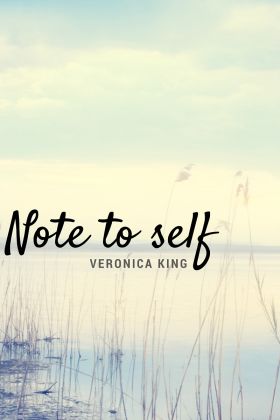Note to self
This week I found myself contemplating a TED Talk by the Hollywood actress Thandie Newton. The child of a black Zimbabwean mother and an English father, Newton reflects on what it was like to grow up as a mixed-race child in 1970s England.
“I was ‘other’ before being anything else, even before being a girl. I was a noticeable nobody,” she says in the talk.
Her words echoed what life was like for me, growing up in apartheid South Africa, and what life still feels like for many black South Africans, especially those who work in corporate South Africa.

Apartheid was very good at its job. How we perceive ourselves – and how others perceive us – is so deeply ingrained. As a country we are still carrying a belief system that white is better, white is right, white is more beautiful. That is our conditioning, and it is deep within us all.
That’s not to say that corporate South Africa hasn’t shifted at all. There has been a slow and steady journey in which boardrooms have begun to include the necessary numbers and quotas to reflect the majority black population. It is important that we acknowledge this.
But we must also acknowledge that when it comes to people, numbers are not enough. True diversity and inclusion is not about scorecards or tolerating each other. True diversity is about genuinely getting to know, understand and connect with each other because only then can we be aligned to the same goals, and achieve the productivity and the numbers companies truly care about: the bottom line.
So how do we get there? There is no silver bullet. It’s a process, not an event. True transformation is about coming face to face with the unconscious bias within ourselves, and realising that what is in me, is stopping me from connecting with you.
And to do that, we have to swallow some very bitter pills. The contemplation of privilege and internalised dominance is a deep, deep thing among white South Africans, as is the notion of internalised oppression among black South Africans. There are uncomfortable truths about ourselves from which we would rather turn away.
At Emuthini Consulting our processes have the prime objective of creating spaces where true dialogue can happen.
These dialogues are never easy. The common tendency is to become defensive about accepting our social conditioning. Frequent comments include:
• “We are all equal now. Why can’t we just move on?”
• “There is no blood on my hands. I’m working just as hard as my black colleagues”
• And the red rag to a bull: “I am colour-blind”
To say to a black person who lived through apartheid that you are colour-blind, is as if to say you do not see them. Invisible all over again, like Newton’s “noticeable nobody”.
For too long corporate bosses have rolled out diversity programmes because they have had to, not because they have believed that to do so will positively impact on lives or bottom lines. Why? Because they, too, are trapped in their unconscious biases.
Our job at this juncture, as South Africans, as humans, as employers and employees, is to increase our awareness of ourselves, of our lived context, of the people with whom we interact on a daily basis and of how our behaviour impacts on them.
We can unlearn our unconsciousness biases and relearn a new way of being. But to do so, we have to want to. Our intention matters.

